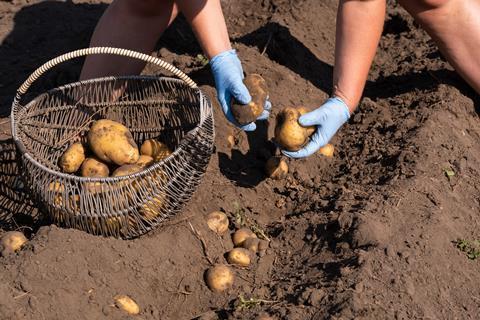Migration Advisory Committee says future of UK Seasonal Worker Scheme must be secured as matter of national security

The new Labour government must provide certainty around the future of the UK’s Seasonal Workers Scheme (SWS) in order to protect domestic food production, a Westminster advisory committee has concluded.
The Migration Advisory Committee (MAC) – a non-departmental government body linked to the Home Office – made five key recommendations to Sir Keir Starmer’s government in its review of the scheme published on Tuesday (16 July).
The committee, which launched its SWS inquiry in 2023, concluded that there is a clear need for a SWS in order to maintain current levels of food production, given the lack of domestic workers and the seasonal and rural nature of the work.
Therefore, it said, further certainty is required from government regarding the long-term future of SWS.
The committee suggested this could be achieved by confirming visa numbers and any further extension to the scheme on an annual basis – effectively giving employers and businesses five years’ notice if the scheme is to close.
In addition, MAC made the case for a more flexible visa to enable employers to plan more efficiently and to allow workers to maximise their earnings.
The committee called for fairer work and pay for workers, and recommended that seasonal workers are guaranteed at least two months’ pay to help cover their travel costs.
It also made a recommendation to tighten, communicate and enforce employee rights.
Finally, MAC advised consideration to the ‘Employer Pays Principle’. It said further work is needed to investigate how seasonal workers’ travel and visa costs might be more equitably shared along the supply chain.
The NFU welcomed many of the findings from the inquiry. Responding to MAC’s review, NFU President Tom Bradshaw said: “We are pleased to see that the MAC recognises how significantly important the SWS is to domestic food security, set against a backdrop of global instability and climate change.
“It is especially pleasing that the review reinforces the NFU’s call on the government to provide certainty about the future of the scheme, allowing food producing businesses to plan ahead. This was alongside a number of other recommendations agreeing with asks the NFU has been campaigning on for many years.”
Bradshaw added: “Worker welfare is a top priority for our members. We continue to engage with all parts of the supply chain to ensure the skilled people who travel to the UK to help produce food for the nation have a positive experience. The government has pledged to introduce a single enforcement body and we look forward to working with them on this. The industry is already highly regulated and audited, so it is important to limit the level of duplication.”
However, Bradshaw responded with caution to certain recommendations made by the MAC, including points around the Employer Pays Principle and employment length. “We need to look at in further detail to see how this would impact the range of farming and growing businesses we represent,” he said.
“As highlighted by the review, certainty is key to the success of the scheme for British farmers, growers, workers and consumers alike. Therefore, it is vital that the new government commits to a five-year rolling scheme and reviews the costs associated to ensure all businesses can access the scheme. Certainty is the currency with which businesses trade and having this commitment would help to restore some of the lost confidence of British farmers and growers. “



